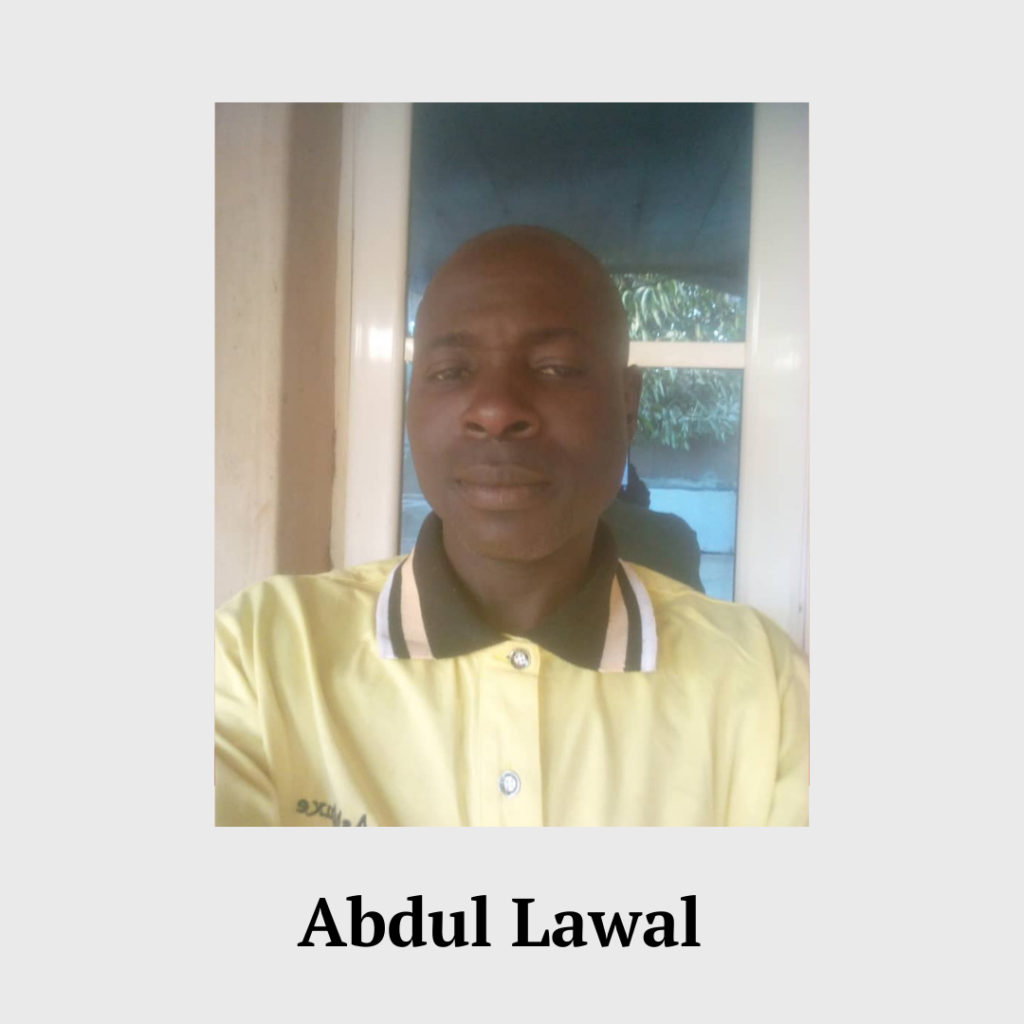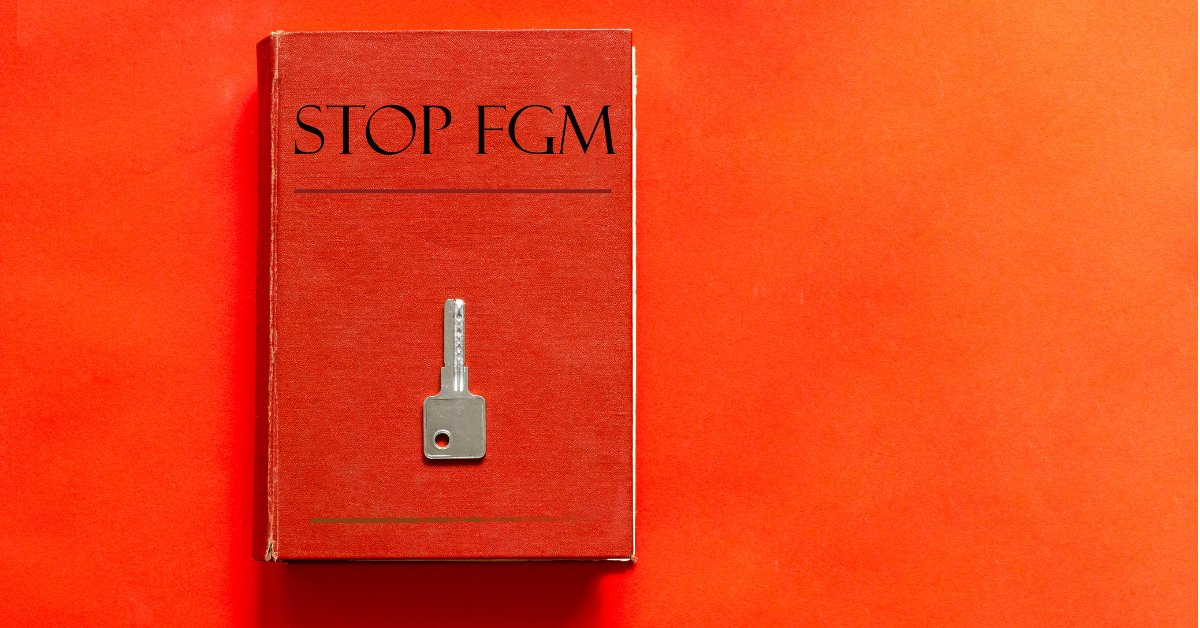Stop Harmful Tradition of Female Genital Mutilation in Nigeria
May 3
Nigeria is one of several countries that participate in the extremely harmful practice of female genital mutilation (FGM). FGM can have deadly consequences, but even if some women and girls do not pay the ultimate price, they often have to live with debilitating physical side effects or suffer psychological trauma. So, Abdul Lawal, a 29-year-old correspondent from Nigeria, wants the government of that country to take active steps, including enacting laws, to help stop the practice.
The World Health Organization (WHO) defines female genital mutilation (FGM) as a procedure which involves partial or total removal of external female genitalia and/or injury to the female genital organs, whether for cultural or other non-therapeutic reasons. Nigeria has the highest absolute number of cases of female genital mutilation in the world due to its large population.
About 67% of girls and women in the country have experienced the pain of FGM despite repeated campaigns against the harmful practice by international bodies like WHO, United Nations International Children Emergency Fund (UNICEF), Federation of International Obstetrics and Gynecology (FIGO), African Union, the Economic Commission for Africa and others organizations. But it appears, by the lack of action, that the Nigerian government is not ready to give absolute support towards eradicating the practice which has become deeply rooted in diverse ethnic and cultural groups over decades.
Nigeria’s Federal Ministry of Health classifies female genital mutilation into four types. Type I or a clitoridectomy involves the removal of the prepuce or the hood of the clitoris. The second type or Type II is called “sunna” and is predominately practiced in the Hausa community of northern Nigeria. It involves the removal of the clitoris along with partial or total excision of the labia minora. Type III is the most severe form of FGM and deals with the removal of the clitoris, the labia minori and adjacent medial part of the labia majora and stitching of the vaginal orifice, leaving just an opening the size of a pin head to allow for menstrual flow or urine. Type IV involves introcision and gishiri cuts, pricking, piercing, or incision of the clitoris or labia, scraping and/or cutting of the vagina, stretching the clitoris and or labia, cauterization, the introduction of corrosive substances and herbs in the vagina, among other things.
FGM is usually carried out by a traditional birth attendant called ungozoma, herbal doctor or magori, and hairdresser or wanzami using sharp tools like razor blades and knives. It is mostly practiced in Nigeria’s south-south among adult women (80%), followed by the south east (70%) and south west (68%), as well as in northern Nigeria (38%). Asked to justify their reason for taking part in such a dangerous practice, many cite the need for cultural protection, using these superstitious beliefs for purification, to curb women’s sexual appetites or modify sociosexual attitudes, to increase men’s sexual pleasure, and other misconceptions. All these non-therapeutic reasons are traditional perceptions instigated by decision makers who are usually grandmothers and religious leaders.
Indeed, FGM is responsible for the deaths of many girls or the damaging of their womanhood. It can cause injury to the urethra or anus as the victim struggles during the procedure, chronic pelvic infection, and acquiring gynatresia resulting in hematocolpos, dysmenorrhea, sexual difficulties and sexual dysfunction. In addition, FGM can affect the bladder, prolong and obstruct labor during delivery which leads to fistula formation, increase perinatal morbidity and result in psychological trauma for victims.
Gwamma, a traditional birth attendant (ungozoma) in Makurdi village, Bakori Local Government Area of Katsina state, wants the harmful tradition to stop. Her granddaughter died as a result of FGM in 2017, one week after she was born. Gwamma’s view is similar to one anonymous hairdresser (wanzami) who also maintains that FGM must be stopped in Nigeria because it affects his clients seriously. He admits that two newborn girls were badly affected after he operated on them. Interestingly, he does not take full responsibility for those negative outcomes, but instead believes that one of his counterparts might have “charmed” him, causing the operations to fail.
Despite FGM being labelled as a violation of human rights and dignity, it continues to take place in Nigeria, as the government remains reluctant to initiate any federal law to ban the practice. But something must be done. Nigeria can stop FGM if clear information and education is given to people on the related health effects.
The Nigerian government must institute the necessary legislation, as well as use health care professionals to help empower women in the society and educate the general population. It can also support communities in their efforts to ignore the practice and improve care for those affected by setting up comprehensive FGM health centres in each local government area.
Photo Credits: Canva
About Abdul Lawal: I am 29 years old. I have (BSc ) in Mass Communication and a Master’s Degree in Strategic Communication. I am currently enrolled in the MSc Mass Communication program at Ahmadu Bello University Zaria Nigerian. I am the author of two English and Hausa novels titled ” All Glitters not Gold and Kishin-Hausa’. I am currently working with the National Youth Service Corps (NYSC) Nigeria as the Executive Officer under the Public Relations Department. I enjoy writing, reading/watching news stories, and travelling.




